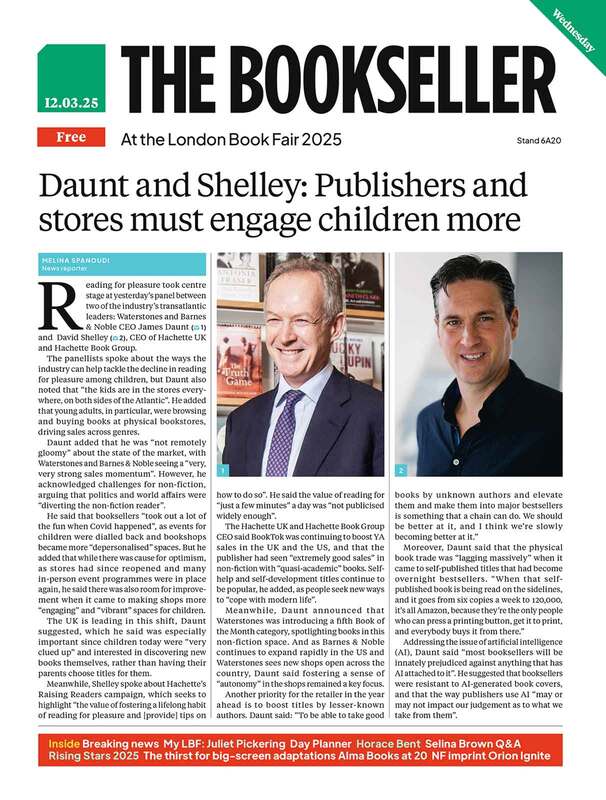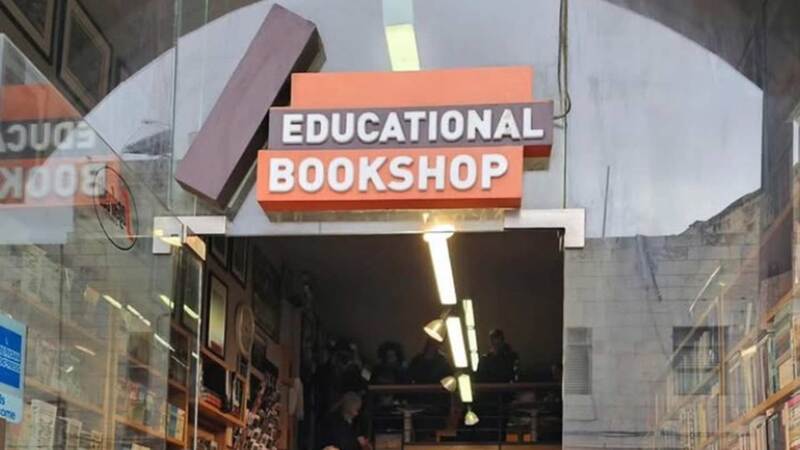You are viewing your 1 free article this month. Login to read more articles.
Physical book fairs 'still needed', as events go digital
Physical book fairs are still vital for business long-term, publishers say, amid expectations that the Beijing Book Fair may be online only this year.
In a webinar on exporting post Covid-19, organised by The Bookseller and sponsored by Times Pansing, Neil Semple, creative content lead of the Department for International Trade, said Beijing Book Fair would now be "online only". However the fair's organisers have not confirmed the plan and told The Bookseller they are still awaiting an announcement from the Chinese government.
The development follows Frankfurt's announcement it would be a blend of digital and physical this year, with all the major UK publishers pulling out of making the physical trip. However, Nosy Crow and Pan Macmillan, which both won British Books Awards this week for export sales, said fairs were still hugely important and they both hoped to attend London Book Fair next year.
Catherine Stokes, head of UK and export sales and marketing for Nosy Crow, said the cost of attending fairs was “at the forefront of our minds” and there was the possibility of coming up with new, innovative ways of doing business. But she said: “I don't think there will ever be a time when we decide that no face-to-face contact is the way we want to go but I do think it's given us a great opportunity.”
Jonathan Atkins, international director at Pan Macmillan, said: “There's no question we need book fairs. We need book fairs to build relationships in the first place, to meet new customers. I think what will happen after Frankfurt is publishers and booksellers will realise that they've saved a bit of money by not attending and they think in future that they'll have to make maybe more brutal decisions about who actually attends and how it's organised in the future. But there's no question we need book fairs and we need the excitement and the drama of a book fair to launch books.”
Speaking about the effects of Covid-19 on trade, Atkins said the impact had been “pretty devastating” in certain countries but June was a “real month of recovery” with a lot of markets coming back to pre-Covid levels. But he said some areas were still badly affected, particularly India with 10,000 to 15,000 new cases every day.
“We're seeing some parts of the world where it's going to take a long time to recover,” he said. Following a “tough” April, markets dominated by online sales such as China had recovered the fastest. Amazon in Germany, which caters for much of Europe, had put in “massive” orders, especially for backlist titles which rely far less on hand selling from booksellers.
Stokes said Nosy Crow's experience was similar and the company was trying to respond to the specific needs of each country and the figures were now “optimistically good”. But she admitted: “Across the board from colleagues I've spoken to we had a level of sales that was half across all countries in April and May.”
Pansing general manager David Buckland said in Southeast Asia, where the markets are still dominated by bricks and mortar shops, the pandemic had been “devastating” for business. The collapse of commercial travel meant air freight costs had gone up seven-fold, he said.
Buckland added credit would become more of a problem going forward and that would have an impact on smaller publishers. “There may be a winnowing process here with some customers - will they survive?” he said. “Certainly that's a worry to us.” He revealed one of his customers in Malaysia has decided to “pull out of or shut” 21 of its 28 stores as part of a realignment towards online.
Stokes explained stock management was now a worry coming up to Christmas because publishers were now relying on sea freight with its slower turnaround time, meaning it would be very difficult to respond to surges in demand. Atkins added the rising costs would mean Pan Mac would have to do more local printing in India and explore print on demand.
Despite the health crisis, Stokes said she remained optimistic but warned: “We are going to have a transition to Brexit to navigate into and disruption to trading routes into certainly Europe will be something that we'll have to deal with too. So we've got another juggernaut coming our way but I think this pandemic has shown us we can deal really effectively with anything that's thrown at us.”
Atkins concluded: “The fundamentals of the appeal of the book remain and the fundamentals of the potential growth in international markets still remain. The UK is a relatively mature market. We are dealing with all sorts of markets around the world where the quality of English is improving, where people are looking for English content and that's not going to change. We've just got to find better ways of reaching those consumers.”
The weibinar can be viewed via Zoom with the password "9z.&#Nk=".



















